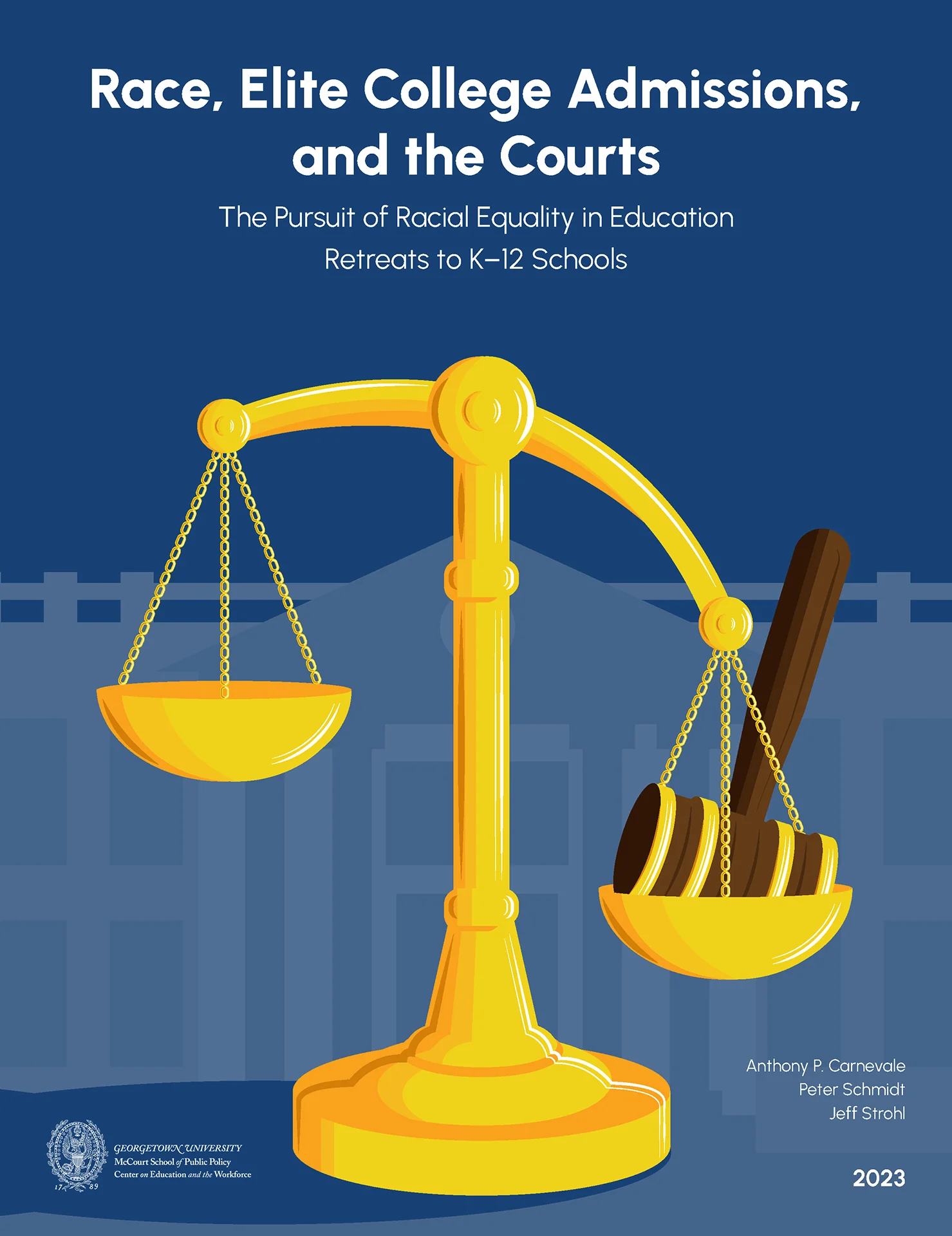
Education’s Impending Racial Crisis
If the Supreme Court bans race-conscious affirmative action, as expected, selective higher education institutions almost certainly will become less diverse, reducing the rates of degree attainment among students from historically underrepresented racial/ethnic groups. Race, Elite College Admissions, and the Courts: The Pursuit of Racial Equality in Education Retreats to K–12 Schools explores the legal history of racial equity in education, evaluates alternatives to using race/ethnicity in college admissions, and considers changes to the K–12 education system that would improve educational opportunity. In the long term, the only way to ensure diversity at selective higher education institutions is to confront the segregation and inequity in K–12 education and society at large.
How We Got to Where We Are
To understand how we got to this point, the report looks at how our nation’s history of racism and economic inequality has skewed educational access, and how efforts to create a fairer and more integrated educational system have been hindered by the Supreme Court’s focus on protecting the individual rights of those already favored by the status quo. The US Supreme Court’s 1978 decision in Regents of the University of California v. Bakke was a turning point that ultimately led to the long-term defeat of race-conscious admissions policies. The rationale behind the decision tied the survival of race-conscious affirmative action to its much-debated educational benefits, rather than wrapping it around a more politically appealing and morally compelling social-justice rationale.
Students for Fair Admissions (SFFA), the advocacy group that brought the lawsuits against Harvard and the University of North Carolina, has urged the Supreme Court not only to strike down the institution’s specific practices but also to declare off-limits any consideration of race by the admissions offices of the nation’s private and public colleges. It has called for the court to overrule its 2003 decision in Grutter v. Bollinger, a landmark case involving the University of Michigan’s law school, which affirmed Bakke in holding that considerations of race and ethnicity could factor into holistic admissions processes given the government’s compelling interest in educationally beneficial levels of diversity in college enrollments.
Looking at the Alternatives
The report summarizes CEW’s research on six admissions models and the impact they would likely have on racial/ethnic and socioeconomic diversity if used consistently across selective colleges. A model that considers both the socioeconomic status and academic merit of students, in combination, could result in more racial diversity than the current system. But this would occur only if all selective colleges used the same model; considered a much larger and more diverse pool of applicants for admission; and abandoned admissions preferences for legacies, the children of big donors, and athletes. Unfortunately, it seems highly unlikely that all selective colleges would simultaneously adopt this model.

A Path Forward
In the absence of race-conscious admissions, the fight for educational equity will largely shift to state legislatures and courts, with inequitable spending on K–12 schools looming as the chief problem that must be solved. The racial and economic segregation of K–12 education is at the root of the gaps in educational resources and education quality that leave low-income and underrepresented minority students at a clear disadvantage.
Resources
Race, Elite College Admissions, and the Courts: The Pursuit of Racial Equality in Education Retreats to K–12 Schools explores the legal history of racial equity in education, evaluates alternatives to using race/ethnicity in college admissions, and considers changes to the K–12 education system that would improve educational opportunity.

